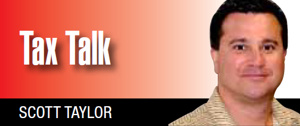There's no one-size-fits-all answer when it comes to incorporating your business
Whenever I'm asked to explain what a corporation is, I start by drawing two circles on my notepad. In one circle, I write the person's name, in the other, I write "corp." It's a simple way to illustrate the point that the individual and corporation are separate legal entities.
Maybe it's better to think of these circles as electrically charged wires that should never touch, or pools of chemicals that shouldn't mix. Because maintaining the distinction between the corporation and the individual is one of the biggest challenges an incorporated owner/operator will face.
Why incorporate?
Incorporation encapsulates all the financial and legal aspects of a business, walling them off from you, personally, and limiting your liability should the company go sour. For example, a corporation can claim bankruptcy without requiring the owner to do the same himself. Of course, the opposite is also true: the owner can claim personal bankruptcy without it affecting the corporation.
As a separate entity, the corporation conducts the business transactions. It signs the contract with the carrier, load broker, or customers. It makes money, showing income from trucking and other services, and spends it, paying expenses incurred while running that business.
Money made by the company belongs to the company, not to you (remember the two circles). Likewise, the company can reimburse you for business expenses you pay on its behalf. But when you draw out money for personal use - let's call this "management wages" - it moves into your circle and becomes your income.
Tax planning
Incorporation brings the potential for tax savings. Again, think of those two circles.
The corporation pays tax on the money inside of its circle (bank account), and you pay tax on whatever money moves into your circle from the corporation. The company can expense your management wages just like it does fuel, maintenance, and insurance, deducting it from earned income.
After expenses, what's left inside the corporate circle is taxed at a corporate rate, which is a much smaller tax rate than we real people have to pay.
Think back to the client I wrote about last month, the single guy who nets $80,000 after all of his expenses, but only spends $30,000 personally. He lives in Ontario, where the tax rate for Ontario corporations is 15.5%. Individuals pay 25% tax on income over $10,000 and our tax rates climb to 35% and higher as we earn more.
His tax calculation works like this: the company has $80,000 in income after expenses and spends an additional $30,000 on a management wage. The remaining $50,000 net income is taxed at 15.5% in Ontario, for a corporate tax bill of $7,750. If the owner/ operator remained a sole proprietor, the $50,000 would have been taxed at Ontario's personal tax rate and generated additional personal tax of $16,600. By incorporating, he and his business saved $8,850 in taxes.
The best choice for you
For me to calculate potential income tax savings from incorporation, one of the biggest factors is how much money you need to run your home (mortgage payments, groceries, utilities, insurance, property taxes, and, of course, all the extras like clothes, haircuts, home maintenance, eating out, kids' sports, and other activities).
If there's nothing left in the corporate circle after you draw your management wage, the corporation would have no income left to be taxed at the lower rate. Your situation would be no different than when you were a sole proprietor. For many owner/operators, incorporation is a great way to maximize their earnings, reduce their tax obligation, and keep their business and personal finances separate. However, what works for one person may not apply to you. Talk to a qualified accountant to find out how to make the right choice.
Scott Taylor is vice-president of TFS Group, providing accounting, bookkeeping, tax return preparation, and other business services for owner/operators.
Learn more at www.tfsgroup.com or call 800-461-5970.
